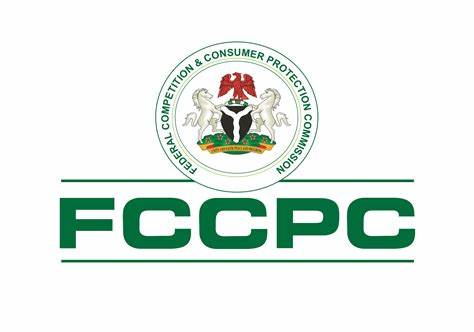On 26th August 2022, the Federal Competition and Consumer Protection Commission (“FCCPC”) issued the “Limited Interim Regulatory/Registration Framework and Guidelines for Digital Lending 2022” (the “Guideline”). It was, indeed, issued pursuant to the powers of the FCCPC under sections 17, 18, and 163 of the Federal Competition and Consumer Protection Act, 2018 (“FCCPA”) – that is, the general functions and powers of the FCCPC and its power to make regulations and issue guidelines and notices for the effective implementation and operation of the provisions of the FCCPA. Click here to access the full article.
LEXSETTERS SECURES BAN REDUCTION FOR ENYIMBA INT’L FC’S OLADAPO AUGUSTINE
We are delighted to have represented Enyimba International Football Club (“Enyimba”) at the Confederation of African Football (“CAF”) Disciplinary Board (“Board”) in respect of the ban on Enyimba’s player, Oladapo Augustine (“Austin”). Austin was banned from all football activities by the Board after a urine test conducted on him (prior to the match between Pyramids FC (Egypt) Vs. Enyimba played on 16th May 2021) revealed a prohibited substance (prednisolone/prednisone) in Austin’s urine. Following our appeal to the Board, which was heard on 8th September 2021, the Board issued a decision on 22nd September 2021 reducing the 12 months ban to 6 months. Austin will resume football activities on 4th January 2022. The firm was duly represented by our Sports and Entertainment Practice Group, led by Amobi Ezeaku.
PRACTICAL STEPS FOR PERFECTION OF TITLE TO LAND IN LAGOS STATE
Perfection of title to land in Lagos State is primarily governed by the Land Use Act and the Lagos State Lands Registration Law, Cap L41, Laws of Lagos State, 2015 (“LRL”). Section 2 of the LRL provides that every document of interest or title to land in Lagos State must be registered in accordance with the provisions of the LRL. By Section 32 of the LRL, a registered holder of title to land has power to dispose or deal with it and create any interest or right over it, subject to obtaining the required Governor’s consent. We have in this article, provided a step-by-step guide for obtaining the consent of the Governor and registering titles to land in Lagos State. We also highlighted the relevant points to note while drafting the transfer instrument(s) and how to package the consent application documents to avoid incessant queries and delays by the Lands Bureau/Registry. Click here to download the full article.
HIGHLIGHTS OF THE CBN GUIDELINES FOR LICENSING AND REGULATION OF PAYMENTS SERVICE HOLDING COMPANIES IN NIGERIA
In exercise of its powers under the Central Bank of Nigeria Act, (“CBN”) issued the Guidelines for Licensing and Regulation of Payments Service Holding Companies in Nigeria (the “Guidelines”). This is a follow up to the approved new licence categorizations for participants in the payments system, issued by the CBN on 24 May 2021 which requires companies desirous of operating more than one licence category to set up a Payments Service Holding Company (PSHC), clearly delineating the activities of its subsidiaries. The rationale behind this arrangement is to prevent commingling of activities, facilitate management of risks and enable the CBN exercise adequate regulatory oversight on all companies operating within the group. The Guidelines provide clarity to players in that space who may be desirous of providing more than one category of payment service. A significant point to note is that PSHC’s can, subject to the prior approval of the CBN, acquire (controlling) interests in permissible financial and/or technology companies. The implication of this, which is laudable, is that there would be opportunities for players in the financial and technology sectors to broaden their scope of operations and enhance productivity for overall positive impact on the economy.
CONDUCTING PROPERTY DUE DILIGENCE IN LAGOS STATE: WHAT YOU MUST KNOW!
Sometimes, people go into business transactions without understanding both the market and the underlying issues which should be considered before proceeding with such transactions. Sadly, such ignorant or negligent steps always attract tears and disappointments, and even worse than any other thing are the strained relationship between business partners and loss of investments. The Nigerian real estate market, particularly Lagos State, is full of complexities. Anyone who intends to invest in it must take all necessary precautions to navigate through those complexities in order not to cry foul when the chips are down. In achieving this, the first step to take is to engage a real estate lawyer who has a good understanding of the industry to conduct proper due diligence on the relevant property. In this write up, we have highlighted what conducting due diligence entails for specific real estate transactions and why each of these steps should, as a matter of caution, be taken accordingly. The full article can be accessed here.
EQUALITY AND FREEDOM OF CONTRACTING PARTIES IN THE NIGERIA PROFESSIONAL FOOTBALL LEAGUE: A MIRAGE
It started as a quiet agitation. Today, the Nigerian league has blossomed into a somewhat unimaginable proportion. From the modest number of eight pioneering club sides in 1972, all featuring in a single division, the league has grown in stature and importance. Parading One Hundred and Three (103) club sides of Three Thousand Five Hundred and Three (3,503) players in the 1995 season, the national league, one of the busiest in Africa and a veritable source of talent for the European scene, ensured mass movement and participation, as teams engaged in power struggle. Notwithstanding the great milestones attained in the league so far, one endemic malady prevails. The malady of professionalism in the all round contractual relationship between contracting parties in this case between the Club Management and Football Player. The methods adopted by parties who wish to establish contractual relationship in the League does not in any way guarantee equality and freedom especially on the side of the Football Player. This articles exposes these challenges and proffers practical solutions which if followed, will salvage the league from unprofessional practices. Click here to see the full article.
CBN CONSOLIDATED REQUIREMENTS FOR OBTAINING LICENCES FOR FINTECHS IN NIGERIA
On the 24th day of May 2021, the Central Bank of Nigeria (“CBN”) issued a circular which consolidated the requirements for obtaining licences for payments system services in Nigeria (the “New Regime”). Prior to the issuance of the New Regime, the CBN had in December 2020 issued a circular which categorized payment systems licences into four (4); viz; Switching and Processing, Mobile Money Operations, Payment Solution Services, and Regulatory Sandbox. The requirements set out in the New Regime cut across the eligibility of the desiring entity, documentation, minimum capital requirements, documentary requirements, application and licensing fees, licence validity, and contact for the submission of application for the grant of licence. We have set out in this article, the salient provisions of the New Regime as they relate to specific payment systems licences. Click here to see the full article.






